The Oddly Brutal Festival That Takes Over the Bolivian Andes
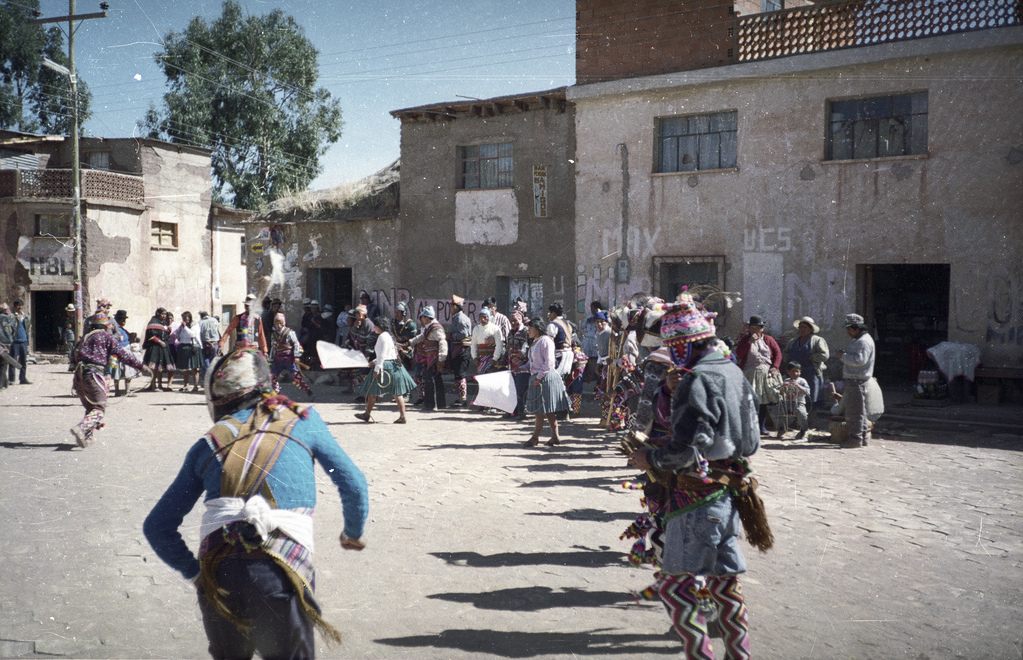
A tinku festival in Macha, Bolivia. (Photo by Arnd Zschocke via Flickr)
Each year in early May, the hills and towns of Bolivia erupt with violent fighting. The weapons are fists and stones. People die. And after a few days, everything goes back to normal.
This is tinku.
There may be no tourist attraction in the world quite like tinku, the ritual street battles practiced by some indigenous communities in the Bolivian Andes. Visitors return with reports of chaos and brutal warfare, fueled by homemade booze, in remote mountain villages.
Tinku, which means something like “violent encounter” in Aymara, is the most notorious element of certain festivals celebrated by two native groups in the Andes, specifically the Aymara and the Quechua. In addition to the brawling, the festivals also include feasts, elaborate dances and huge, choreographed musical events. Some of the biggest are held in the towns of Macha and Potosi.
There are generally only one or two of these festivals per group each year, according to Henry Stobart, an ethnomusicologist who has lived with and studied the festivals, which means they really have to count. “I don’t think they are a violent people,” Stobart says of those who partake in the tinku sparring, “but unlike most groups they seem to have an outlet for it.”
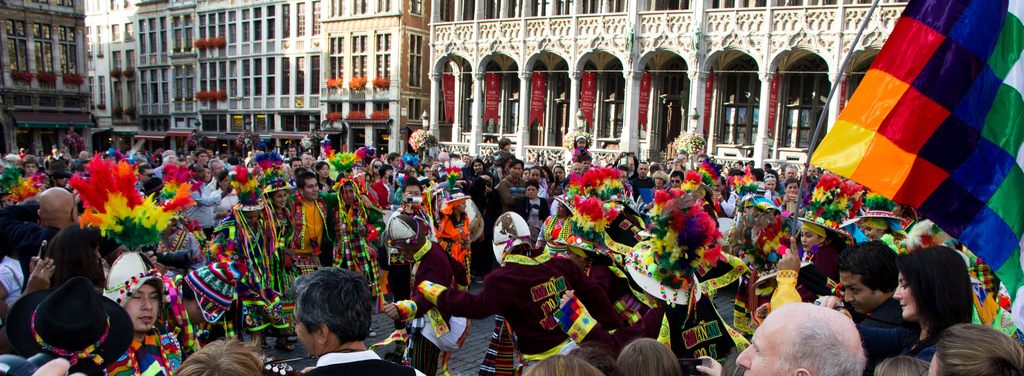
Traditional tinku costumes. (Photo by Antonio Ponte via Flickr)
Tinku is a heavily ritualized form of battle, but the skirmishes aren’t supposed to be personal. Traditionally, the fighting may have been meant to honor Pachamama, a Bolivian goddess, but these days it’s more like a sport than anything else, a way to prove one’s bravery. Village against village, villager against villager. Where once there was peace, suddenly there is war, and just as suddenly, that war will end.
The teams, such as they are, tend to be made up of ayllus, originally extended family units that have over the years become small, tight-knit communities. The fights are pre-arranged; you don’t just go in swinging, like a mosh pit. And the attire and methods of fighting are formalized as well. Many wear colorful costumes, and sometimes a traditional sort of helmet. Fighting is at first done only with fists, and later supplemented with weapons like rocks.
Theoretically, there are rules to prevent people from getting injured too badly. “Police and community authorities are usually at hand to stop the fighting if one person has fallen to the ground,” says Stobart, though once the stone-throwing starts, all bets are off. Deaths during tinku are not unusual. “Sometimes underlying conflicts between groups can also surface and the fighting can get ugly and carry on after an opponent has fallen to the ground,” Stobart explains.
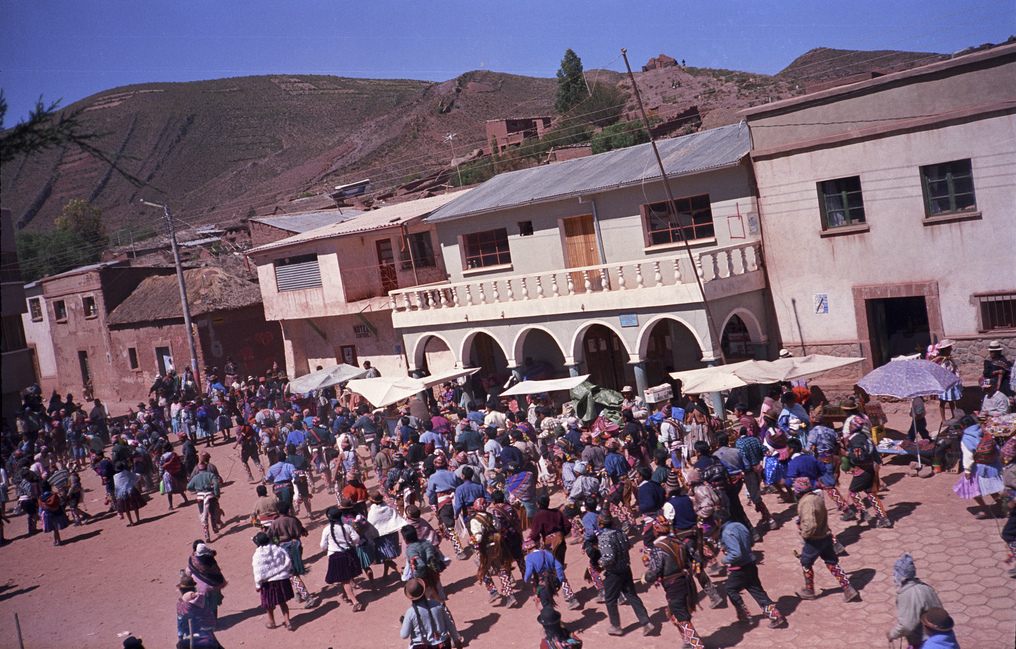
A tinku festival in Macha, Bolivia. (Photo by Arnd Zschocke via Flickr)
Usual depictions of tinku are wrapped up in themes of drunkenness and poverty, and indeed beverages like chicha, a sort of cousin of beer, are certainly a major part of the festivals. But Stobart was extremely insistent that tinku is not indicative of the rest of the year–in fact, it might be so unlike the normal lives of festival participants that it serves as a way to avoid drunkenness and violence in general. “People work incredibly hard and relatively few days each year are dedicated to festive activities with drinking and music,” says Stobart.
From a macro perspective it seems, in some ways, to spring from a similar need as American high school football rivalries. “Frankly, I don’t enjoy tinku itself at all,” says Stobart, who has witnessed a number of the events. The government of Bolivia has a more nuanced and complex view of things; they try, with varying degrees of success, to limit the mayhem, but also recognize that tinku is a legitimate tourist attraction, Bolivia’s running of the bulls. For the people who participate, though, it’s a necessary explosion of energy, a way to vent and avoid existing in a state of anger for the entire year. They might be onto something.
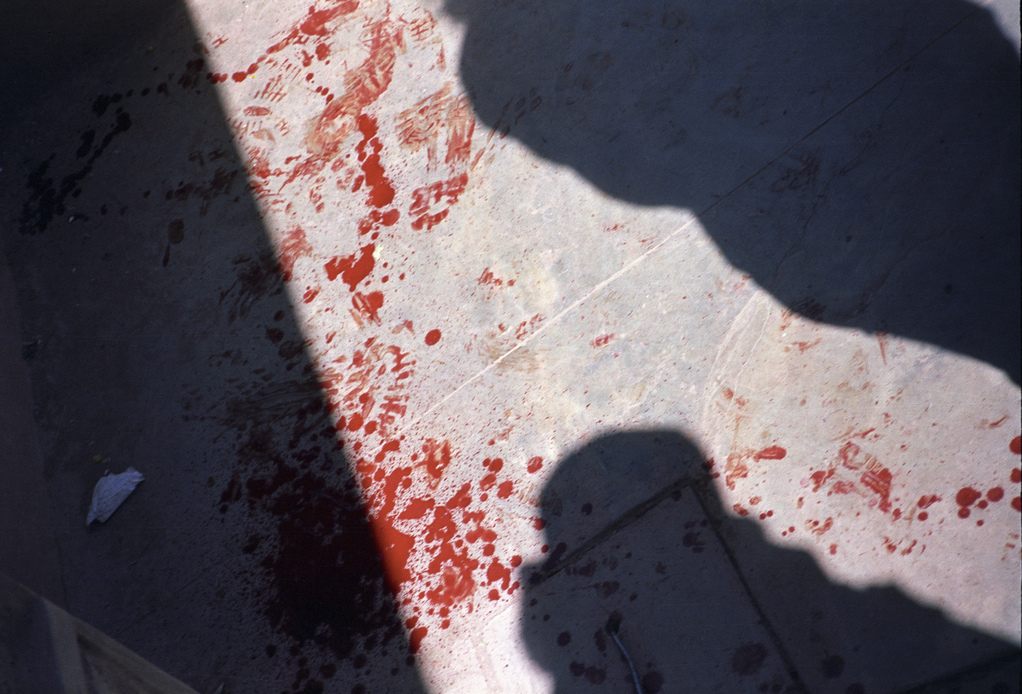
Blood on the ground after a tinku brawl. (Photo by Arnd Zschocke via Flickr)
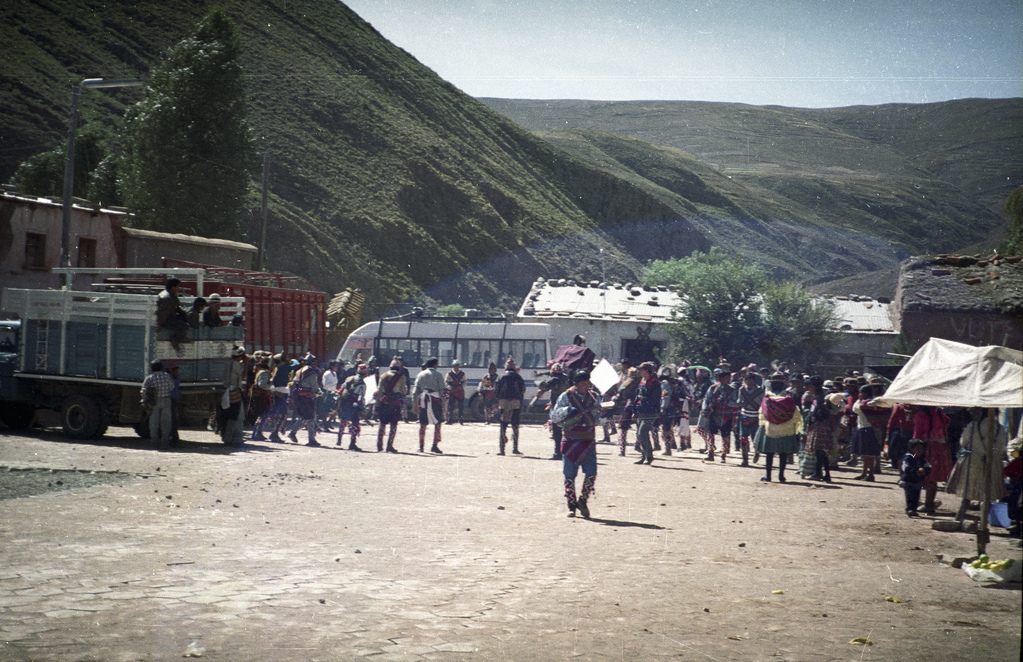
Warming up for a tinku rivalry in Macha, Bolivia. (Photo by Arnd Zschocke via Flickr)






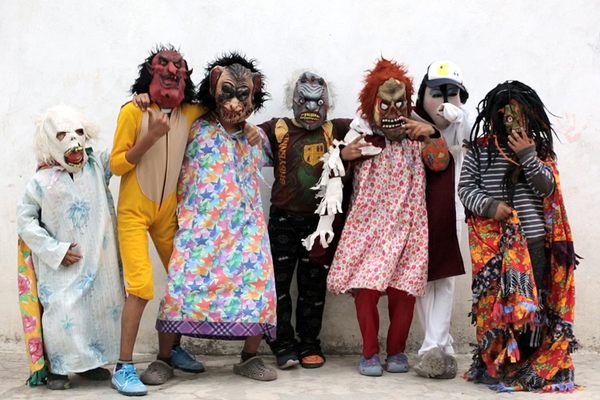





Follow us on Twitter to get the latest on the world's hidden wonders.
Like us on Facebook to get the latest on the world's hidden wonders.
Follow us on Twitter Like us on Facebook